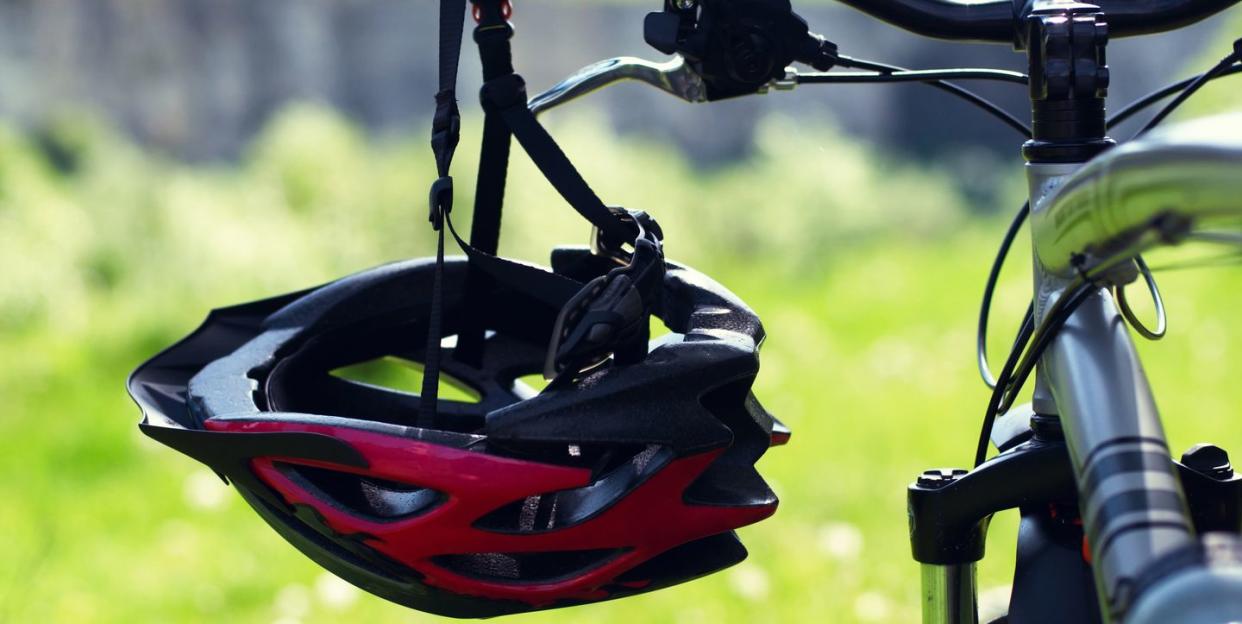Murder Suspect Arrested Because He Was Biking Without a Helmet

Canadian police arrested a murder suspect after stopping him for biking without a helmet in British Columbia.
After realizing the bike may have been stolen, officers tied Kyle Antonio Dias to a murder committed last month in Toronto.
Bike helmets are mandatory for cyclists of all ages in British Columbia and four other Canadian provinces.
It was a routine stop that snowballed into a breakthrough: On March 15, Canadian police stopped a man for cycling without a helmet, a minor ticketable offense in the province of British Columbia. Two hours later, they tied him to a murder.
Royal Canadian Mounted Police (RCMP) stopped Kyle Antonio Dias as he rode a mountain bike through the small city of Nanaimo, on Vancouver Island off the country’s west coast, a spokesperson confirmed. Bike officers picked up the 19-year-old while patrolling a downtown park known for its homeless encampments.
At first, the unit stopped Dias for not wearing a helmet-mandatory for cyclists of all ages in British Columbia and four other Canadian provinces. The offense carries a $100 fine.
But then the officers realized Dias’s bike matched the description of one that had been reported stolen, giving them grounds for an arrest and identification. Dias reportedly gave a series of fake names, and RCMP spent two hours running them through a national database, until his real name turned up.
Toronto police then confirmed Dias was wanted in connection with the shooting death of Tesfa Welsh-Hope, 27, on February 13. Dias had apparently fled more than 2,700 miles west, and now Nanaimo had a murder suspect on its hands, all because of a stolen bike and a missing helmet.
“A lot of criminals think, ‘I’ll just go as far west as possible and no one will know I’m here,” said Gary O’Brien, media officer for the RCMP in Nanaimo.
Yet the 25-year-0ld helmet law is a source of debate in the Canadian province. Public health groups, like the Canadian Pediatric Society, have pushed to extend the law throughout the country. Meanwhile, bike advocates, citing research like a 2015 study in the British Medical Journal, argue that mandatory helmet laws discourage riding and contribute little to cyclist safety.

Studies have found that bike helmets do help prevent against severe head injuries, but not other kinds of injuries that can hurt or kill riders. Critics of mandatory enforcement argue that better infrastructure, such as protected bike lanes, would go further to protect all cyclists, encourage more people to ride, take some of the blame off crash victims, and help avoid unnecessary (or imbalanced) encounters with police.
O’Brien admitted that police can’t fully enforce the law, and estimated that more than 6o percent of riders in Nanaimo leave their helmets at home. He said when officers do pursue helmet violations, they will aggressively cite misdemeanors with the intent of uncovering arrest warrants.
In many cases, he said, these stops do lead to more serious arrests, but never before had they involved a murder suspect.
“It’s quite common,” O’Brien said. “This was just the first time that the jeopardy was so serious.”
Dias was flown back to Toronto last week. The arresting officers did not pursue the bike helmet charge, but said they did return the mountain bike to its owner.
('You Might Also Like',)

